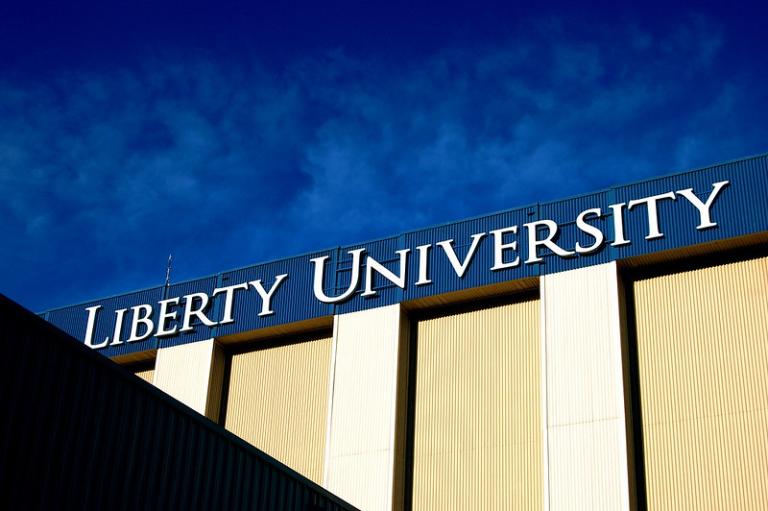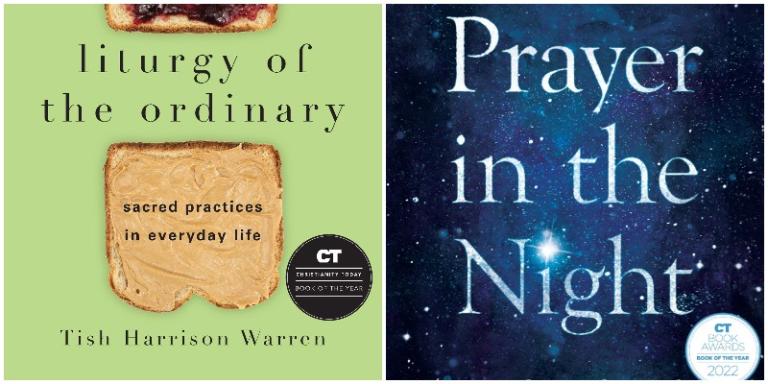On Thursday I’ll reprise one of my favorite annual rituals: reflecting on common themes running through our thirty most-read posts of 2021 at The Anxious Bench. (If you can’t wait quite that long for the reveal, we’ll count them down on Twitter the night before.) But today, I thought I’d first compile a different kind of list: in reverse chronological order, my favorite articles, essays, and non-Patheos blog posts from this year.
Note that some of these links may take you to a paywall before the articles themselves. But don’t let that stop you from reading. Just take some of the money you’ve saved by reading our free content at The Anxious Bench, and invest it in the work of other publications.

Victoria Reynolds Farmer, “Mary’s Song,” Plough, Dec. 10, 2021
Though it originates with the Anabaptists of the Bruderhof Movement, Plough increasingly features a wide range of thoughtful Christian voices. Few were more poignant than that of Victoria Farmer, whose experience of cerebral palsy drew her to the story of Mary even before she converted to Catholicism.
Raimundo Barreto and João B. Chaves, “Christian nationalism is thriving in Bolsonaro’s Brazil,” The Christian Century, Nov. 18, 2021
Coming out of the Trump era, few religious subjects have attracted as much renewed scholarly attention as Christian nationalism. (For instance, one of my best friends at Bethel is devoting his spring sabbatical to the subject.) But Barreto and Chaves reminded me that there’s nothing exceptionally American about that movement, particularly as it takes hold among evangelicals like those who support Brazilian president Jair Bolsonaro.
Eleanor Parker, “The Never-ending Process,” History Today, Nov. 2021
Historians spend a lot of time trying to convince non-historians that there’s nothing wrong with historical revisionism. Typically, that argument turns quickly to “schools of thought.” What I appreciated about medievalist Eleanor Parker’s article is that she made it more personal: “being brought face-to-face with my own mistakes…. Living in a culture that rewards nothing so much as black-and-white certainty and inflexibility of opinion, it’s also good to remember that we can change our minds.”
Hannah Dreyfuss, “The Liberty Way,” ProPublica, Oct. 24, 2021
The hardest read on this list may also be the most essential, at least for those of us who work in Christian higher education. Three years after it reported on problems with online education at Liberty University, ProPublica returned to Lynchburg to investigate sexual assault and purity culture at one of the country’s largest Christian institutions of higher learning.

Will Bardenwerper, “Minor Threat,” Harper’s, Oct. 2021
When I teach History and Politics of Sports next spring, I’m sure that I’ll have students read Bardenwerper’s longform reporting on minor league baseball — and not just because it features the Appalachian town where my parents have lived for nearly thirty years. “Minor Threat” looks at the ways that sport is woven into the fabric of American economic and social life, and what happens when that thread is suddenly ripped out.
Raymond Haberski, Jr., “Never Forget What?”, U.S. Intellectual History Blog, Sept. 11, 2021
There were hundreds of 9/11 essays to pick from, twenty years out from those terrorist attacks — and less than two weeks after the abrupt end of America’s war in Afghanistan. But if only because it’s set in the Midwest, my favorite was Haberski’s. Though his analysis of commemoration in Indianapolis is geographically far from the targets of the 9/11 attacks, it cuts to the heart of the matter: the meaning of war and how we remember it.
Tish Harrison Warren, “Why We Need to Start Talking About God,” New York Times, Aug. 22, 2021
It’s one thing for an Anglican priest to win a second Book of the Year award from the flagship magazine of evangelicalism, but it’s even more impressive to me that Tish Harrison Warren spends some of her time thinking about God in front of a public as secular as the readership of the New York Times. (Both halves of that description also fit Esau McCaulley, by the way.) Whether it’s wrestling with abortion or advocating for poetry, her newsletter is always nuanced, pastoral, and honest — beautiful orthodoxy, indeed.

Mark Schwehn, “Plague Theology,” Current, Aug. 5, 2021
It’s a hard thing to launch a new publication in 2021 — especially one that aspires “to be free, dynamic, divergent, and civil” — so I hope many of our readers will support the work of Current. Indeed, I’m tempted to spotlight one of the many pieces Anxious Bench contributors have published for executive editor John Fea, one of this blog’s founders. But given how COVID has amplified the problems that Current is trying to address, a good starting point would be this essay by a historian and educator whose work has deeply influenced Fea et al.
Samuel Goldman, “The pandemic killed the common good,” The Week, July 21, 2021
Having offered my fair share of appeals to “the common good” over the years (e.g., the fourth chapter of this book), I appreciated Goldman’s COVID-era critique of such rhetoric. “Under these circumstances,” he conceded, “the case for the common good seems rather powerful. But there’s a problem: We don’t agree about what it involves…. Even when deployed sincerely, it’s too broad, too moralistic, and too contestable to persuade anyone to alter their behavior.”
Daniel Silliman, “NDAs Kept These Christians Silent. Now They’re Speaking Out Against Them,” Christianity Today, July 7, 2021
In the same year that historian Daniel Silliman published a well-received book about evangelical fiction, journalist Daniel Silliman continued to investigate how churches and Christian organizations conceal abuse. In this July article, for example, he drew on his historical training to add legal context for his reporting on the misuse of non-disclosure agreements.
Nick Bryant, “Once the future, USA now captive to its past,” BBC, June 17, 2021
Maybe it’s just that I’m an American who studies Europe, but I’ve always appreciated reading European commentaries about America, like this reflection by the BBC’s New York correspondent. (“O wad some Pow’r the giftie gie us,” wrote one European, “To see oursels as ithers see us!”) When Bryant “came to [the] United States as a wide-eyed teenager in the mid-1980s, one of the things that seduced me about America was its preoccupation with the future. Almost four decades on, I’m struck by how it remains captive to its past.”
Diana Butler Bass, “White evangelicals after Trump? What now?”, CNN, May 17, 2021
You need to read past the headline in this case — and maybe the author’s name. For while Bass is a vocal “ex-vangelical” who doesn’t shy away from criticizing white evangelical support for America’s 45th president, this piece is actually a poignant reflection on what’s good about evangelicalism… or, at least, what’s been lost from the evangelicalism that shaped Bass earlier in her life: or, as she puts it, “what it once was and might be again.”

Jane Hu, “Why the Filet-O-Fish Is My Gold Standard for Fast Food,” New York Times Magazine, Apr. 20, 2021
I’m trying not to repeat publications in this list, but I’ll stretch that self-imposed rule far enough to include a short essay that helped me see something very familiar through a very different prism. “Born from an attempt to market fast food to as many people as possible,” my favorite sandwich at McDonald’s “has since been further claimed by everyone from fish-loving Chinese-Americans to practicing Muslims to — well, anyone with taste.”
Mitchell Atencio, “Do You Like Paying for War? These Christians Refuse,” Sojourners, Apr. 12, 2021
I regularly discuss conscientious objection in my classes on the world wars, but I hadn’t realized that some Christians “believe Jesus’ instructions on nonviolence extend to their finances.”
Alex Morris, “For These Young Evangelical Activists, Facing the Climate Crisis Is an Act of Faith,” Rolling Stone, Mar. 21, 2021
A surprising story from a surprising source, Morris’ profile of evangelical climate change activists finds them motivated by their faith to act as missionaries within their own churches, where they tell older Christians, “You taught me to love God. You taught me to care about justice. Let’s do it.”
Derek H. Alderman and Joshua F. J. Inwood, “How Black cartographers put racism on the map of America,” The Conversation, Feb. 23, 2021
“Dedicated to unlocking the knowledge of experts for the public good,” The Conversation has become a regular read for me this year: a regular opportunity to learn not just from fellow historians, but scholars in other disciplines. Here, two geographers explain how early 20th century civil rights activists made use of “counter-mapping,” publishing data visualizations about lynching and other injustices to “produce an alternative public understanding of the facts by highlighting the experiences of oppressed people.”
Jen Holmes Curran, “Does Prayer Work?”, Reformed Journal, Feb. 14, 2021
Asking her titular question, warns Curran, a pastor in Grand Rapids, MI, “betrays that we are thinking about prayer as a technology. We are imagining God as some sort of cosmic machine.” Instead, she concludes, in a post published on Valentine’s Day, that “prayer is less like mechanics and more like love.”
Emma Green, “Betraying Your Church — And Your Party,” The Atlantic, Jan. 28, 2021
For my money (and I do pay for this subscription), there’s no better magazine than The Atlantic. Not so wide-ranging that it can’t focus on matters as essential as the state of democracy in the United States, The Atlantic also does better than just about any other mainstream American periodical at taking seriously the role of religion in public life. I hope that won’t change with the departure of Emma Green, who started the year by profiling Adam Kinzinger, the evangelical Christian and Republican politician who voted to impeach Donald Trump after January 6th and serves on the bipartisan committee investigating that insurrection.
If you enjoyed the mix of topics and perspectives gathered here… note that I do this kind of curation almost every weekend at my own blog, The Pietist Schoolman.












